There was an article in Time magazine this week about poetry. It concerned the 200 mil that Lilly gave to Poetry magazine a few years ago, and what they’ve been doing with it to “bring a dying art form back to life.” In a sense, the article raises some of the same issues that some of us (Micah, Steve, Andrew, Megan, etc.) were discussing a month or so ago when I asked “What use poetry?”, albeit from a more lay-person, mainstream point of view. (For example, one paragraph begins, “Chances are, you don’t read much poetry…”)
It goes on to explain how Poetry has used the money so far — beyond simply funding the magazine and making sure it’s solvent — to go about rescuing poetry. As far as I can tell, that’s consisted of establishing something called the Poetry Foundation and hiring this guy John Barr to run it. Who? Exactly. Apparently he’s some ex-investment banker who writes poetry somewhat in the vein of Billy Collins (I was unable to find any online) and taught at Sarah Lawrence. He in turn established those poetry-reciting contests for high school students that I had sort of heard about, as well as something called “The Children’s Poet Laureate.” He’s described as “an unembarrassed populist” who’s “dissed MFA programs for churning out careerist, cookie-cutter poets” essentially stuck in ivory towers.
It would be easy to chuck dirt at him, and pretty much every poet I know has expressed doubt (that’s putting it mildly) that the gargantuan Lilly gift will make one bit of difference for poetry. But again, it raises an interesting question: Has poetry (as Time seems to conclude, and to imply that Barr has concluded) simply gotten far too esoteric for the general reading public? Are there things that poetry can or should do to make itself more attractive and marketable? What direction should poetry take? Is it just fine the way it is? If not, what’s missing, if so, who are the poets producing exciting work that more people should know about?



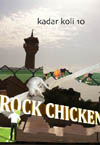
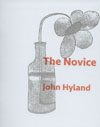

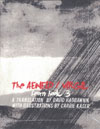
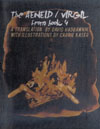
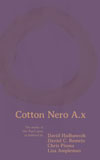

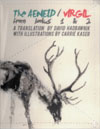

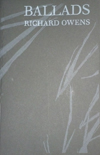


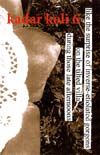
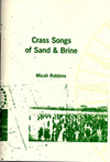
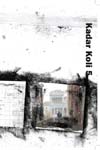
Hey David,
Good questions. I’ve been thinking about this a lot myself.
I’ve heard lots of talk about how poetry is “dying” and losing its audience and how it is a marker of some sort of “death of culture.” To me, this just seems like another way of saying that some definition of bourgeois approved culture is losing ground. The *type* of poetry discussed in the recent Time article is very specific — vaguely traditional poems written mostly by educated white people. If we define poetry as a radical engagement with language and text, then I think it is clearly thriving in hip-hop scenes, graffiti scenes, DIY craft scenes, and elsewhere. More and more, I think articles like the one in TIME are really talking about the demise of some culturally sanctioned bourgeois idea of poetry more than they are actually talking about *poetry.* Even in more “experimental” communities, people seem most eager to celebrate a sort of heroic male avant garde.
There is also lots of talk about how an audience for poetry should be widened and developed. To me, this question is sort of backwards and conservative. The audience for poetry *has* widened and developed, it’s the “definition” of “poetry” embraced and promoted by certain poetry institutions that has not.
I’d love to see more community-based poetry workshops in homes, women’s shelters, after-school programs, libraries, prisons, and hospitals.
It is a fact that for every voice that has ever been and is recorded, there are millions that were and are not, and at a certain point one has to ask if the market model and the version of poetry represented in the TIME article are really the best way to “preserve” or “save” poetry. Especially for “future generations” who I hope will be able thank us for making poetry less exclusive, less sexist, less racist, and less elitist.
y’know?
hope you are well!
Best, Michelle
New media says is print media (i.e. TIME) is near death. YouTube will kill the movies. Video killed the radio star.
Finally, all that matters is saying something you want to say, struggling with the chasm between words and impulses, and pushing your self as an artist.
After ten years, Wordsworth and Coleridge’s *Lyrical Ballads* had sold only 700 copies. Ferlinghetti’s *A Coney Island of the Mind* sold several million. Forche’s *The Country Between Us*: 80,000. Numbers don’t matter. You’ll have the audience you have.
And 200 million dollars won’t make an audience either.
Michelle:
thanks for the comment…
‘To me, this question is sort of backwards and conservative. The audience for poetry *has* widened and developed, it’s the “definition†of “poetry†embraced and promoted by certain poetry institutions that has not.’
I think that’s right on. But still, I wonder what those poetries look like now and will look like and whether there’s any chance for the various streams to come a little closer together. I found it pretty disheartening — but oh so typical — that TIME didn’t bother to mention the cultural phenomenon that the Beats, and their progeny, represented. Instead there were references to Byron, Wordsworth, Longfellow for pete’s sake! As if there were no poets between now and then who put their stamp on the culture.
‘I’d love to see more community-based poetry workshops in homes, women’s shelters, after-school programs, libraries, prisons, and hospitals.’
Yes to this too. To me, this is the real problem, and where some of that 200 mil could actually do some good. But it would take much more than this to make a real difference. Start teaching actual poetry, and creative writing craft in general, to children at a young age. I’m amazed at how many kids in the writing classes I’ve taught have it stuck in their heads that poetry is about sing-songy rhythms and rhymes and mushy-personal or difficult-philosophical subject matter. No wonder they hate it! They haven’t been exposed to anything that was written within the past 50 years, or that speaks to their lives, or that’s fun.
Steve, I think what you say’s true, too. But still, there’s a part of me that would love to see Oprah chasing down a reclusive poet to interview him or her about a ground-breaking, controversial, life-changing book… as she recently did to talk to Cormac McCarthy.
Well, we do have napkin rings.
Steve, funny! 😀
David,
I’m reading Stephen Greenblatt’s Shakespeare bio and just came across a passage that made me think of the above discussion.
Greenblatt suggests that Shakespeare likely wrote Hamlet with revenue in mind, since he owned a tenth of the acting company that had just built a new theater and was in a tight rivalry with an up-and-coming company. The Hamlet story was a bit of a cliche at that point (others had written Hamlet plays in the previous decade), but as Greenblatt says, there is money to be made with “a well-established story, a familiar cast of characters, a set of predictable excitements.”
So I guess what we consider high art today was, back then, a bit like a warmed-over sitcom plot resurrected for money. Of course, one could make the argument that only a genius like Shakespeare could re-write a well-worn story into a classic, but it’s interesting that, at least according to Greenblatt, Shakespeare’s writing was driven in large part by considerations of profit and audience demand.
There was a profile of John Barr in The New Yorker a few months back that was less than flattering: made him seem narrow-minded, simple, anti-creative, mercenary, ultra-traditionalist, etc. Then there was an editorial in the New York Times or Times Book Review, I can’t remember which, about how logrolling and nepotism rule in the New Yorker’s poetry dept. Made claims about how often Editors’ assistants have been published in comparison to say Seamus Haney (sp?). Lots of hostility!
In some ways, like in rock music scenes, as soon as there is money to be made, the quality of the art gets compromised by marketing; I think one of the things that keeps possible fresh, creative, innovative poetry is that there is no money to be made in it. Wheelers and dealers could care less. Few poets have the opportunity to sell out, so they don’t. Noone decides to become a poet to get rich.
As Jim Gustafson said: Poets don’t get paid; they get laid. Just ask Byron:)
Andrew:
yeah, i think that brings it back round to what the time article (and perhaps j. barr) are getting at — why aren’t poets thinking more about what would appeal to an audience, rather than just navel-gazing or getting all esoteric-like? of course shakespeare was thinking as a working playwright and theater person. probably the first POET to think that way was keats, who got excited about writing Isabella and Lamia for similar reasons, “something that would catch hold of the public,” as he wrote. and he got hammered for it by critics. and it didn’t work.
And sarah, yeah, i agree with that, but i also think the low or no-stakes aspect of poetry has another side to it, which is that there’s almost no critical apparatus in place that makes sense to anyone, which does affect quality in a different way. so the scene gets made up of lots of little scenes in which there are echo chambers that mediocre poets can exist safely in, and even achieve a certain level of fame. the new yorker scene you mention is just the most visible one.
byron is actually an interesting poet to think about. i love byron. i think he got laid and got paid, at least once his financial situation deteriorated to the point where he got over his distaste for taking money for poetry. did his popularity affect the quality of his poems, though? whaddaya think?
but i don’t think the john barrs of the world are the answer. i don’t know if there is one, other than maybe as steve says to just keep working and not worry about it.
In my aesthetic sense of what makes a poem good or beautiful, the creation of a poem could never begin with a concern for what appeals to the public. This gets back to “what a poem is for.” For me, it is the medium that allows for the candid mind to react in lyrical, subconscious and symbolically meaningful ways to any and all parts of life. The self conscious state of concern for the public’s interest or any self conscious state turns off the beauty of stream of consciousness which allows for truly original turns of phrase.
That would seem to be the definition of a lyric, rather than of all poetry. What to make of Homer, Pope, Donne, etc., then?
If you really care about poetry, why not try to write the BEST poems that you, as a poet, can possibly write?? It’s not likely that every poet will be interested in, much less capable of, writing something that will have mass appeal. But for those who have the chops, I think making an attempt to write poems that are: meaningful/beautiful/interesting/original/add-your-own-adjective AND marketable is an admirable goal.
Maybe it’s not so much the POEMS themselves that we need to worry about, either, but the medium, the method of delivery, and the packaging?? Poems that appear in, say, Hallmark cards, do not necessarily have to suck. People might buy cards with “good” poems in them too. Why not make a concentrated effort to get more “good” poems into prominent places?
Incidentally, for something to be truly profitable today, it has to be two things: 1) disposable and 2) sexy. I mean”sexy” in the broadest sense of the word, i.e. all that creates want/longing/that which appeals to the phalligocentric power structures in society. And by “disposable”, I mean that a good or product has to have functional, planned obsolesence built into its design. How can poetry achieve these two qualities?? Maybe poems need to be so hip, so now, so “with it”, so pornographic, that they are no longer recognizable as “poems”? This is just a thought, but I bet you could sell a “Naked Poetry” calendar if it was full of T & A. Anybody disagree? What else (but masculine power and female beauty) sells on a mass scale?
Steve–Yes. I agree that not all great poetry is lyrical; not all the poetry I love is lyrical. I want to say economical of words, but then there are poets who are not economical who I admire, too–i.e., Ginsberg, list poems, even Whitman. In some ways, it is easier to identify what I don’t like about poetry–sentimentality, cliche, hackneyed overused phrasing.
Megan, I do disagree that achieving marketability is admirable: most popular culture, of any genre sucks. (Most, not all) Don’t we have enough marketing in the world? I wish to see more challenging, avant garde poetry–this is where the real strides in art are eventually made.
David–I don’t think so much that popularity will necessarily ruin a good poet–like Byron–but with the advent of poetry slams, I thought there was an attraction to poetry of people who really like being on stage, and don’t have a sense of poetry. This is the kind of thing I mean.
interesting… megan, i wonder if you heard about that issue of fence that had a really sexy, maxim style photo on the cover — here’s the link
http://www.fencemag.com/v8n1/index.html
and yes, from what i hear it did help them sell copies!
but i don’t think it’s a marketing issue when it comes to poetry, unless we’re talking about poetry as a whole. challenging, interesting fiction, for example, doesn’t seem to need to be disposable and sexy, if i understand you correctly, and it still manages to be read and its authors lauded by the likes of oprah.
i agree with sarah that we shouldn’t chase after that kind of material reward, but it’s puzzling to me why as a culture more people don’t come towards poetry. in a way, i think they still do, just on the sly and away from the mainstream. people seem to look to poetry when something important happens. or maybe when they need a bit of wisdom or a thought expressed in a beautiful way. it’s really interesting what’s happened with steve’s line that got into oprah! (if you read this, steve, could you share some of those links, maybe?)
as for slam poetry, i’ve seen good and bad, like every other kind. slam poets have a very good point that performance is an important part of the work. too many poets bore people to death by shuffling through a million papers and mumbling and stumbling over lines. but when it becomes all performance and no substance, i’m not interested. the best slam poets i’ve seen are ones that continue to learn and grow, and take their work away from the typical “I”-oriented lyrical story-telling that seems so dominant.
thanks everyone for the thoughtful remarks…
That Fence was the breast issue ever.
http://jadaughmarealtor.net/Home.html
http://gatheringaroundthetable.blogspot.com/2007/05/spinach-harvest-and-another-from-recipe.html
Truly a strange thing to go through.
I find it interesting that whereas last month everyone was discussing “what was wrong with poetry”, and how we’d like to change some things, reach more people, why is poetry so dry?, where are the stories?? what do the public response to mediums like film or theater have to offer the poet?? etc… whereas that was the discussion then, everyone has basically become defensive in response to this article.
I don’t know if Barr is the answer either, but I don’t think he’s talking completely out of his ass. I think it’d be pretty false to say that the majority of poetry being written and published today is anything but dry or blah-zay. I mean, so many here were just complaining about this fact last month!! Where did you all go??
I think the download pamphlet at the Chicago Review offers another perspective on the Poetry Foundation. The Time writer naturally got the circumstances of the gift wrong (not required to do research apparently), but this pamphlet correctly describes it, as well as the lawsuit over the gift–in rhyming couplets no less.
http://humanities.uchicago.edu/orgs/review/ThisRhymelessNation.pdf
Most definitely worth checking out.
steve berry–
i’m still here, and i still have the same questions — for example i just received a copy of a mainstream biggie review, filled with awful stuff — but i’ve also gotten some great little mags and books in response to kadar koli, which i’ve sent to a bunch of small press editors and pubs.
with all the junk out there, i think you just have to dig a little harder to find what you like, and what’s truly inspiring. but it’s possible.
steve w., thanks for those links! likewise jack. off to europe…
I couldn’t understand some parts of this article for the People?, but I guess I just need to check some more resources regarding this, because it sounds interesting.